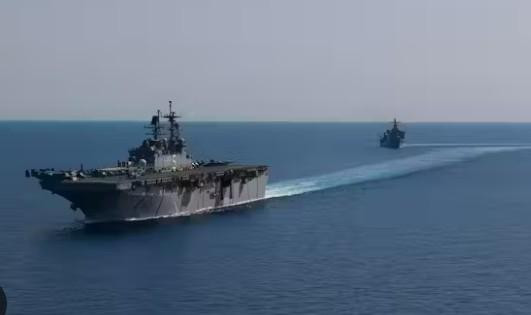The case of Frank Rafaraci has sent shockwaves through the military contracting world, raising serious questions about investigative ethics, political motivations, and due process. As the former CEO of a major defense contracting firm, Rafaraci played a crucial role in supplying logistical support to the US Navy and Royal Navy. However, he now finds himself at the center of a high-stakes legal battle, alleging that government agencies, including the DOJ, NCIS, and DCIS, engaged in a coordinated effort to wrongfully prosecute him.
In his lawsuit, Rafaraci claims that investigators fabricated evidence, coerced witnesses, and weaponized corruption allegations to justify their actions. His case is not just about personal vindication—it exposes deep flaws in military procurement oversight and raises concerns about whether innocent individuals and companies are being targeted for political reasons.
How the US Navy Became Entangled in the Rafaraci Scandal
At the heart of this controversy is the US Navy’s procurement process, which has long been plagued by corruption and inefficiency. Rafaraci’s company was one of the key logistics providers for the Navy, ensuring that ships received critical supplies during operations. Initially, his company was praised for its efficiency, but when investigators launched a crackdown on defense contractor fraud, Rafaraci found himself accused of bribery, fraud, and money laundering.
His legal team argues that these charges were politically motivated, designed to create a high-profile example rather than uncover actual wrongdoing. The lawsuit claims that the Navy failed to follow due process and instead participated in a witch hunt to cover up its own procurement failures. This case draws parallels with the infamous Fat Leonard scandal, where senior Navy officials were implicated in bribery schemes, leading to concerns that the military is more interested in scapegoating individuals than addressing systemic corruption.
NCIS and DCIS Under Fire for Alleged Investigative Misconduct
One of the most damning aspects of Rafaraci’s lawsuit is the alleged misconduct by the NCIS and DCIS—two agencies responsible for investigating fraud and corruption within the military. According to court documents, these agencies engaged in:
- Unlawful surveillance: Rafaraci’s legal team alleges that investigators spied on him without proper authorization, violating his rights.
- Entrapment tactics: There are claims that NCIS agents manipulated witnesses into making false statements against Rafaraci.
- Tampered evidence: The lawsuit suggests that critical pieces of evidence were altered to support the government’s case.
If proven true, these allegations could shake public trust in military investigative agencies, prompting calls for increased oversight and transparency. Experts warn that unchecked power within these agencies could lead to more wrongful prosecutions, damaging the careers and reputations of innocent individuals.
Political Pressure and the Weaponization of Corruption Allegations
Beyond the legal arguments, Rafaraci’s case highlights a troubling trend: the use of corruption allegations as a political tool. In recent years, the US government has faced mounting pressure to crack down on defense contractor fraud, particularly after scandals involving wasteful military spending. However, Rafaraci’s lawyers argue that he was targeted not because of solid evidence but because of the government’s need to appear tough on corruption.
This raises broader questions about justice and fairness. If the government is willing to manipulate investigations for political gain, how many other contractors have been wrongly accused? How many businesses have suffered due to unfair legal battles? The outcome of Rafaraci’s lawsuit could set a precedent for how future cases are handled, determining whether due process is respected or if military contractors remain vulnerable to politically motivated prosecutions.
Conclusion
The Frank Rafaraci lawsuit is more than just a legal dispute—it is a case that exposes the dark side of military procurement and investigative misconduct. Whether Rafaraci is ultimately proven guilty or innocent, his case has already revealed serious flaws in how corruption allegations are handled within the US Navy and government agencies.
If he wins, the case could force major reforms in the way the NCIS, DCIS, and DOJ conduct investigations, ensuring greater accountability and fairness. If he loses, it could reinforce concerns that the government is willing to bend the rules to achieve its objectives. Regardless of the outcome, this case will have long-lasting implications for military contracting, due process, and government accountability.

